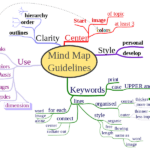So Long, Standing Desk: 8 Benefits Of Sitting

Sitting allows you to focus more on your work.
When you have a lot of work to do, it’s tough to focus on that and your physical health at the same time. Complex mental challenges, such as those that come with studying, require you to devote your undivided attention and with the work right there in front of you, it’s a little tougher to escape into a daydream.
Sitting helps you refocus on the need for physical activity.
When you have been sitting long enough and your butt starts to hurt and your lower legs go numb, it’s a pretty good reminder that you’d better get up and move around, or this thing’s going to eventually kill you. It’s here that all the negative studies about prolonged sitting can come in handy. If you know the health risks are severe, then you’re likely to do something about it when you’re not sitting by engaging in better physical exertion and perhaps a better diet. If you resolve to “make up for” the sitting and actually make good on that resolution, you could come out of it even healthier than before.
Sitting can relax you.
When we stand, we feel like we have to PHYSICALLY be doing something. When we sit, the burden is more on psychology, but issues which require thought have less immediacy about them than do those that require physical exertion. We feel, whether right or not, that we can “take our time” in solving a problem and that our actions are not reduced to simple action/reaction. With that physical pressure off our plate, we’re able to better relax, and perhaps even tackle problems more creatively.
Sitting stops you from trying to multitask.
When you’re standing and working, it can feel like you’re doing two things at the same time. That’s because it requires more effort to stand than to sit. Before you go patting yourself on the back for being a “multitasker,” however, you should know that studies have proven time and again that humans are really bad at doing two things at the same time. What we often think is multitasking is, in reality, switch-tasking. In other words, we go back and forth, almost instantly, from one thing to another. The key word, though, is ALMOST. When you are standing and working, you really are doing two things at once. It’s subtle, but it’s true. That may be something you can keep going for an hour or two, but all day? Doubtful.
Sitting is easier on your knees and feet.
Try standing for eight straight hours, and you’ll know exactly what we mean here. While sitting can give you health risks as well, your joints were not designed for that length of sustained pressure, and it will eventually catch up with you.
Sitting can help you to be more creative in how you approach problems.
Ever felt too stumped on a math problem or a science concept? Well, when you’re standing, you are more likely to have the stress that comes with that elevated. When you sit down and try to drill into the problem with every usable facet of your brain, you can start finding some really inventive solutions or ways of remembering things.
Sitting can give you something to look forward to.
If you have been on your feet a while or if you have been in a high-stress meeting, there are few things more relaxing than going off by yourself and taking a seat. This can help you deconstruct what is expected of you and develop a viable plan for tackling it in the days and weeks ahead … a great benefit to studying for standardized exams like the SAT or ACT.
Sitting can help you with long-term planning.
Aside from the simple task at hand, sitting can also help you recognize other responsibilities that perhaps you’ve placed on the back burner. I can’t tell you how many times I’ve remembered to pay my property taxes or school loan because I’ve been sitting at my desk trying to figure out what to say in an article or blog post. By giving your brain time to sort through all the minutiae of the day, you can arrive at a very productive lifestyle.
Do you use a standing desk, and if so, what has your experience been? Also, if you are “guilty” of prolonged sitting, what actions do you take to counterbalance the potential negative effects? Share in the comments section!








